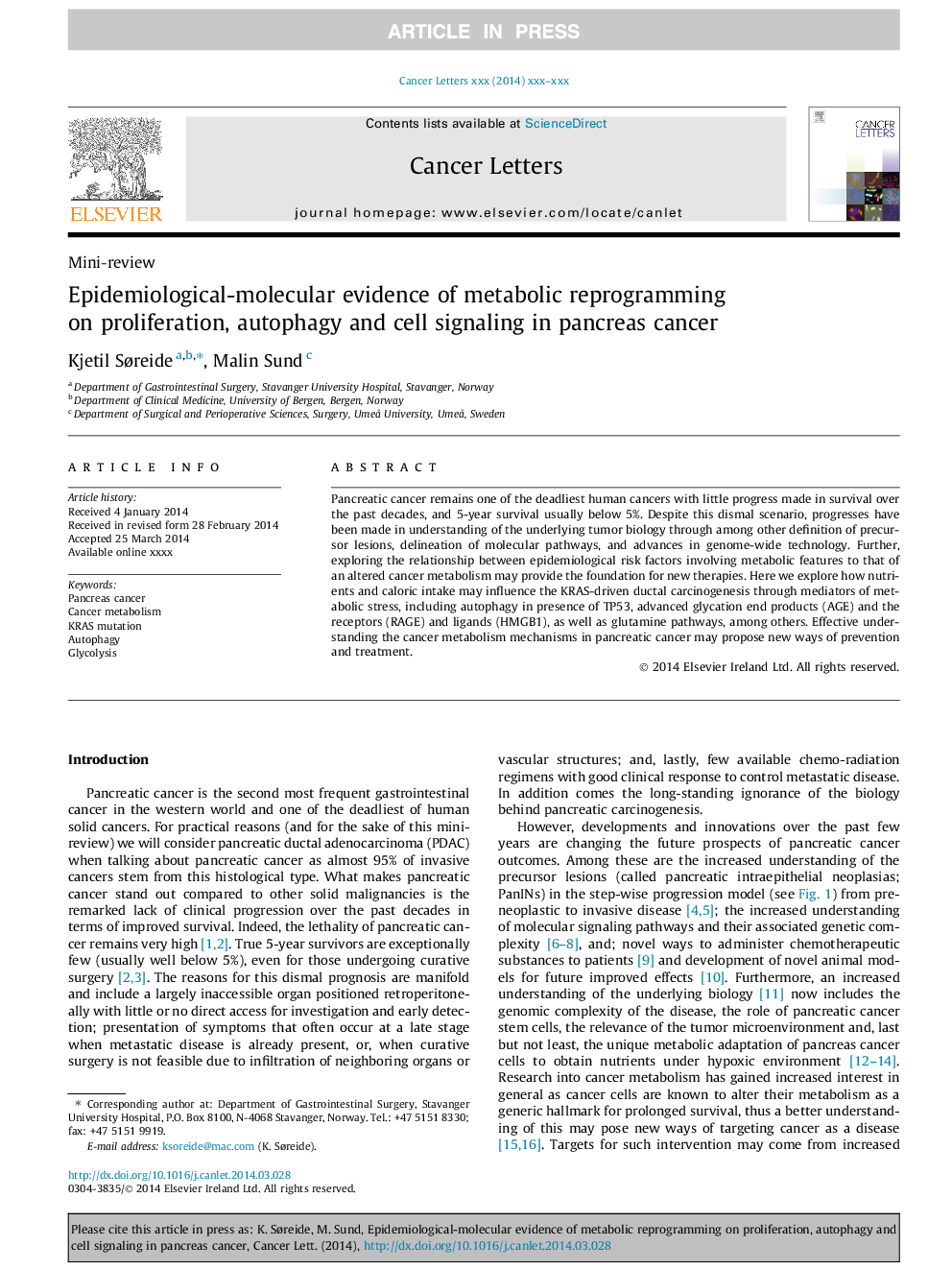| Article ID | Journal | Published Year | Pages | File Type |
|---|---|---|---|---|
| 10899779 | Cancer Letters | 2015 | 8 Pages |
Abstract
Pancreatic cancer remains one of the deadliest human cancers with little progress made in survival over the past decades, and 5-year survival usually below 5%. Despite this dismal scenario, progresses have been made in understanding of the underlying tumor biology through among other definition of precursor lesions, delineation of molecular pathways, and advances in genome-wide technology. Further, exploring the relationship between epidemiological risk factors involving metabolic features to that of an altered cancer metabolism may provide the foundation for new therapies. Here we explore how nutrients and caloric intake may influence the KRAS-driven ductal carcinogenesis through mediators of metabolic stress, including autophagy in presence of TP53, advanced glycation end products (AGE) and the receptors (RAGE) and ligands (HMGB1), as well as glutamine pathways, among others. Effective understanding the cancer metabolism mechanisms in pancreatic cancer may propose new ways of prevention and treatment.
Related Topics
Life Sciences
Biochemistry, Genetics and Molecular Biology
Cancer Research
Authors
Kjetil Søreide, Malin Sund,
